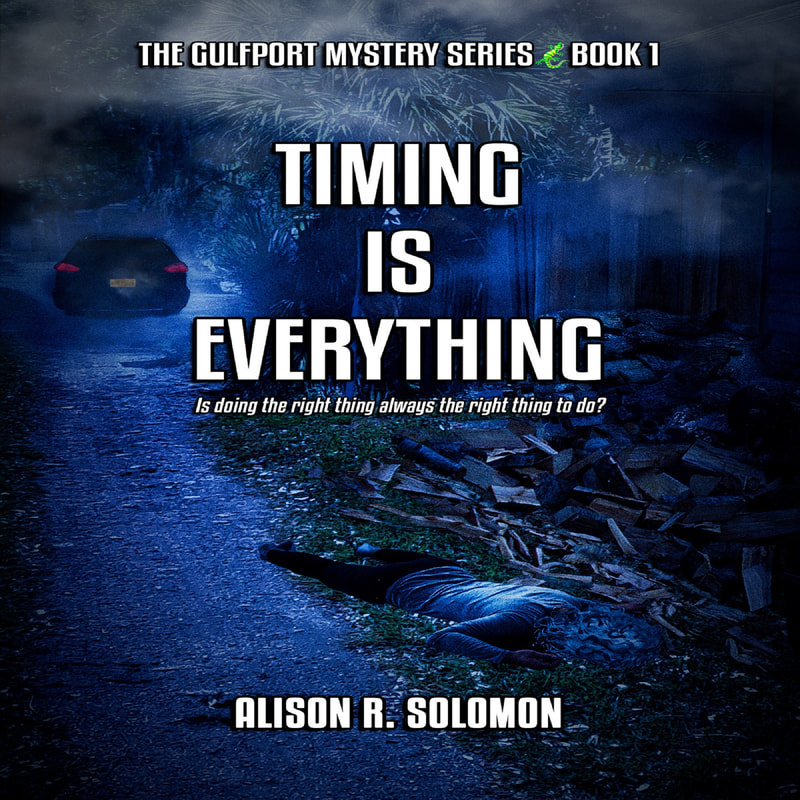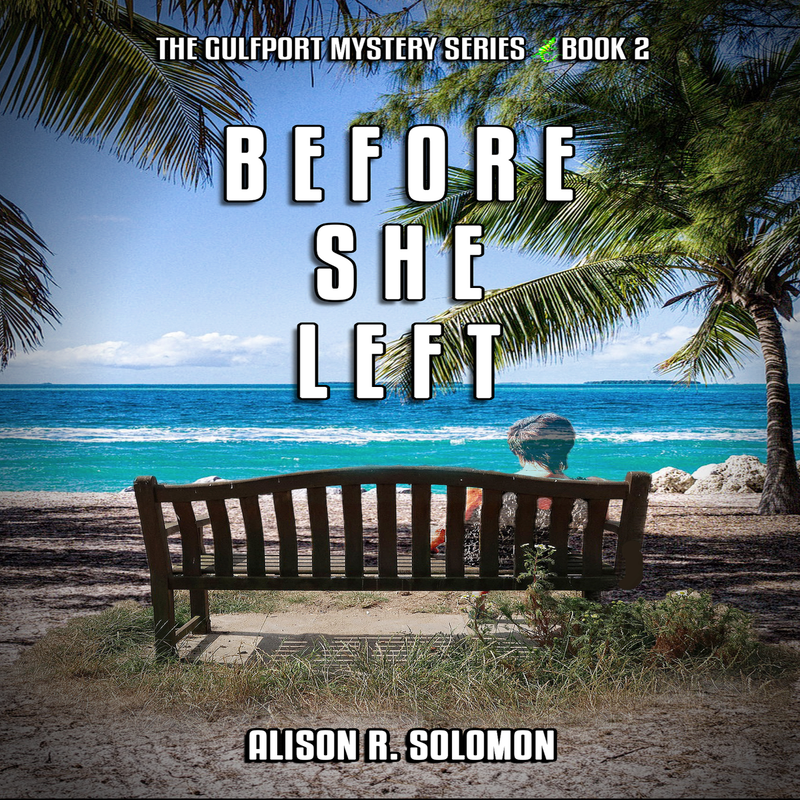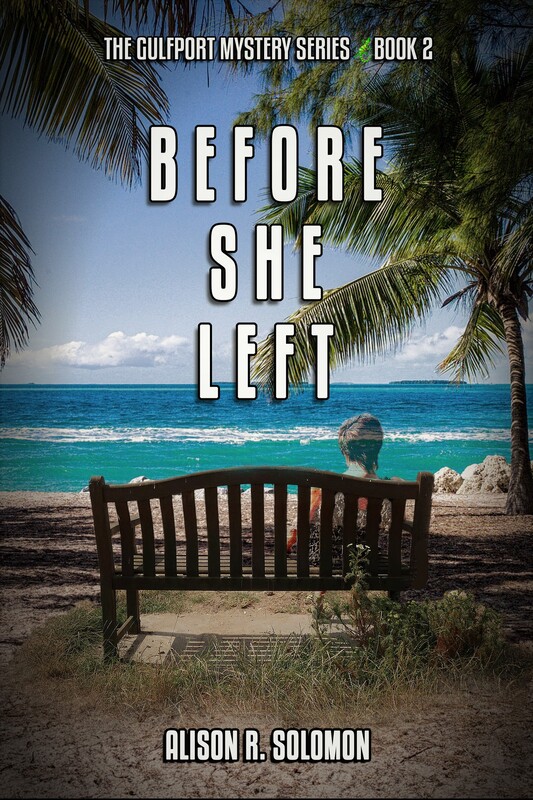|
What Would Breezy Do?
I wonder how Breezy Carmichael would react in the current COVID 19 situation. Breezy is the protagonist of my new novel, Before She Left, another in the Gulfport Mystery Series. I’ve been wondering what it would be like for her because Breezy struggles with a mental health issue. In her case it’s not anxiety, depression or PTSD. It’s a personality disorder, specifically borderline personality disorder. (For those of you already reacting to that word Disorder, I agree, it’s not helpful and it’s a set-up for doctors to treat clients as pathological.) Borderline personality disorder (BPD) is a diagnosis that’s especially problematic because it tends to be given much more to women than men, and in particular to women who act out in socially unacceptable ways. The first time I came across someone with that diagnosis was in the 1980s when I was a brand-new intern at a university hospital psychiatry clinic. I was the only social worker in a group of psychiatry residents. We watched through a one-way mirror as a resident conducted an initial evaluation with a client who described a harrowing background of abuse and neglect. After the interview was over, the residents discussed her case and quickly agreed she was not appropriate for treatment at the clinic because therapy couldn’t help her. “Why?” I asked, even though I wasn’t meant to be speaking. I’d already been told they were doing me a great favor by allowing me to observe. “She has big stuff that she needs help with.” They eyed me pityingly and then several of them said, at the same time, without disguising their contempt, “but she’s Borderline!” Luckily, we’ve come a long way since then. Instead of turning people away without ever explaining why their lives are unmanageable, we now educate them about their diagnosis, and provide them with support groups, self-help books and numerous online resources. But these folks still struggle in their personal lives and relationships because BPD makes it hard for them to regulate their emotions and tame the inner turmoil they constantly feel. While all my novels are first and foremost entertainment, as a clinical social worker I also like to inform readers and help them see people or situations from a new vantage point. For example, in Along Came the Rain I dealt with characters struggling with memory issues and the foster care system. In my last novel, Timing Is Everything, I cast the spotlight on what it’s like for immigrants in today’s current climate. (I’m an immigrant and knew how hard it was even when the climate wasn’t so anti-immigrant.) In this novel, Before She Left, I decided to have a character who could be easily misunderstood or dismissed, and to show the positive side of this diagnosis. People with BPD are often extremely sensitive. I compare it to someone who has really, really thin skin. Imagine someone taps you on the arm. If that doesn’t bother you, you turn around and say, “yes?” But if your skin is so thin that one tap can bruise you, that tap feels like a punch so you might turn around and yell, “what the f—k?” Because every tap feels like a punch to people with BPD, they are often perceived as over-reacting. And the other side of this sensitivity is that if everything feels like they’re being mistreated, they can’t always recognize when they really are victims of abuse. My job as a therapist is to help my client recognize when a tap is a tap and when it’s a punch. So what must it feel like in these days of social distancing, isolation, job loss, financial stress and fear of contamination to someone like Breezy Carmichael? Ironically, I suspect she’d be doing OK. Because all the things many of us are feeling now are things she feels every day. The novel opens with her wondering why her fiancée, Ella, hasn’t come home. She doesn’t know whether this is a situation that’s panic-worthy or not. She’s terrified Ella’s in danger, but is she? And once she decides to contact law enforcement, what should she do when the investigating detective tells her to accept that she’s been dumped? In the novel, Breezy has to use the tools she’s learned to figure out what to think and feel. She asks herself how other people might react in the same situation. So I think that today she would listen to the news and be reassured by the fact that feeling anxious and stressed by COVID 19 is normal. She would be fiercely protective of those she loves, while also using them for emotional support, just like she has to everyday. And she’d make sure she was checking in with her therapist, for extra reassurance. So how about you? Are you making sure you’re getting the support you need? Do you have someone to help keep you sane and sunny in these difficult times. I am forever grateful to my wife, a high-risk person who isolated long before it was required, who is keeping her sense of humor and cooking us delicious, healthy meals. For myself, I decided to learn something new – in this case Audacity, which is the software for creating an audiobook. It was a steep learning curve, but I completed taping and editing Timing Is Everything and just this week Audible approved its publication. I hope you'll enjoy both these offerings.
2 Comments
Before She Left is almost here! This is another book in the Gulfport Mystery Series. I'm delighted to say that the book launch event will be at Gulfport Public Library, Saturday April 25th, 2pm. Pre-order will be available early April for those who buy books online.
Buzz Aldrin once said, “Timing is very important…I have been blessed to be in the right place at the right time.” He was responding to a question on how he ended up being one of the first people on the moon. He was undoubtedly lucky, but what if you’re not? What if someone is in the wrong place at the wrong time? Or they think they’re in the right place, but it turns out the timing couldn’t be worse? These are the dilemmas characters in my new novel, Timing Is Everything, are grappling with. I suspect almost all of us have had the experience of feeling as if timing is screwing with our lives. I certainly have. Almost 20 years ago when my partner and I were trying to fost-adopt a child, we had an incredibly supportive caseworker who was doing our home study. We were the only lesbian couple in the agency and she believed we’d be great parents. A week before the home study was finished, we were informed that she was no longer working at the agency. (We never found out why.) The new caseworker procrastinated endlessly and even after we were certified, she never placed a child with us. At the time all I could think was, if only we’d joined that agency just a few months earlier everything would have been different. At the other end of the scale, I’ve also experienced perfect timing, even if it didn’t seem like it at the time. I came to the USA on a student visa, and then received a temporary work visa based on my job in a social work agency. Once I met my now-wife Carol, I was determined to stay in the USA, but how? I went to meet with an immigration lawyer and based on what I told him, he said the only way I’d get a green card was to marry a man. I returned to work and burst into tears, frustrated and scared. A colleague passing by my desk asked me why I was crying. I told her. She said she knew an immigration lawyer who was doing innovative work for a friend of hers and she believed that attorney could help me too. She was right. That lawyer did something completely unique and I became the first social worker ever to get my green card based on a national interest waiver – a category generally used for famous basketball players or wealthy businesspeople. If I hadn’t burst into tears at that moment, we’d never have had the conversation we did, and my whole life would have been different. Wynn Larimer (who you might remember from Along Came the Rain) is putting out the trash late one night when a car smashes into her, injuring her so badly her entire livelihood is in jeopardy. Gabriella Luna (Gordy) is about to achieve permanent resident status in the USA when she’s accused of a felony crime. The timing couldn’t be worse—she’s terrified of being deported. The woman who wants to help both Wynn and Gordy is Kat Ayalon (who readers met in Devoted.) Wynn is Kat’s best friend and Gordy is Kat’s new love interest. But when the worlds of Wynn and Gordy collide, Kat doesn’t know how she can support both women, if helping one means selling out the other. Timing really is everything—I planned on having this blog come out on release day, but I got so sick that by the time I contacted Jove to set up the date, all the blog spots were full until today. I have to believe there’s a reason for my bad timing, and I can’t wait to find out what it is! This blog was first published in Women and Words The Pressure, oh the Pressure!
I’ve been a writer for decades and have always felt good about it. My first published article was for the Israeli feminist journal, Noga in 1987. In the 1990s and 2000s I published articles and stories in a variety of journals, newspapers and anthologies. I authored a humorous lesbian-feminist column in Philadelphia and an advice column in Sacramento and loved it. None of this prepared me for what it’s like to publish a novel. Last April my debut suspense novel, Along Came the Rain, was published by Sapphire Books. I was exhilarated. For a couple of months I rested on my laurels. And then the marketing and publicity pressure began. I was bombarded with advice: “Real writers spend 50% of their time writing and 50% of their time marketing.” “Hire a PR person.” “You need to post on Facebook twice a day.” “You must comment on everyone else’s Facebook pages as often as possible.” “Start your own blog.” “Hire someone to manage your social media.” “Tweet daily.” I wasn’t willing to hire a PR person or pay for advertising. I wanted the quality of my writing to speak for itself and to trust that satisfied readers would spread the word. But the endless articles I read and workshops I attended about social media, blogging, and marketing all told me I was wrong and that I needed to get with the program. When my second novel, Devoted, came out, I tried to put some of what I’d learned into practice. I started a twitter account and planned a Facebook campaign of regular posts, but I kept forgetting to follow through. Days would go by when I never opened Facebook because I was focused on my writing (or my life.) Weeks passed and I realized I hadn’t tweeted. I knew I should. Every time I went on Facebook and saw how often folks were promoting their work, I castigated myself for not doing a better job. Whenever I was somewhere other than sitting in front of my laptop, I found myself thinking that I ought to be doing something, anything, to promote my novel. I joined more Facebook groups, confirmed more friends—and found I had even less time to keep up with the people and events I really cared about. I started getting bad headaches and migraines just thinking about it all but I forced myself to tweet and retweet. And then I heard myself say, “I don’t want to be a writer anymore.” I’ve always been someone who believes we should enjoy our work at least 70% of the time. When I write a novel, I relish the creative part where everything flows easily, and I slog through the 30% which is just bloody hard work. Putting added time into social media skews my 70-30 balance because I don’t enjoy marketing. Even though I love writing my novels I started to think that if publicity was as important as creating the product, maybe I’d just stop creating the product. Then I read The Circle by Dave Eggers. The novel is brilliant and thought-provoking and I recommend it to everyone. At one point the protagonist, who works for a social media company, is reprimanded for not posting and participating frequently enough online. I felt for her. What she chose to do as a result of the pressure to conform isn’t what I’d choose, but it did make me realize that I have choices. I can choose to only post when and how I want to, even if it means I won’t sell as many books or be known by as many readers. I began to realize that the most important thing is to enjoy what I’m doing and hope that whoever does stumble across my work enjoys it too. It’s not what the bloggers and experts would recommend, but I believe it’s what may work for me. It might mean I never become a bestseller. You may never see me post on Facebook, “I made the top ten on Amazon!” However, I will have more readers than I did for the first novel I wrote. That’s because my first novel was never published. It was accepted twenty years ago by Seal Press who then decided to focus solely on non-fiction and therefore returned the manuscript to my agent. Shortly thereafter my agent retired and, feeling that I had no other options, I stopped trying to publish that novel. I’m grateful that nowadays we have so many publishing choices, but it does mean that more writers are publishing and therefore the competition to find readers is fiercer than ever. This competition is what creates pressure to promote constantly. I could succumb to that pressure, but I’ve decided not to. I’m only going to do the amount of promotion that feels right for me. In The Circle, the people who didn’t suck it up and revolve their lives around social media were doomed. I hope real life shows there’s room for my way of doing things. If there isn’t, and my ship is sunk, then all I can say is, at least I’ll go down happy. This blog first appeared for Women and Words, January 22, 2017 (Womenwords.org)  I was brought up an orthodox Jew so we had rules about everything. You could eat a chicken if its neck was slit but not wrung; on the Sabbath you could read a book but not play the piano, write or switch on a light; you were expected to attend services every Saturday, but only if you could walk to get there. I never minded all these rules and regulations because I loved my Judaism. In fact, I planned on going to seminary and becoming a Rabbi’s wife. But life has a way of bringing about surprises and instead of becoming a Rabbi’s wife, I ended up making out with one(true story). You might be wondering what any of this has to do with lesbian fiction. One of the issues my new suspense novel, Devoted, deals with is what happens when long-held beliefs clash with adult reality. Ashley Glynn suspects her beloved sister, Lizzie, was poisoned and she’s determined to find out who did it. But unraveling the mystery of her sister’s death forces her to face the conflict between her religious beliefs and long-suppressed sexual desires. Devoted is a mystery novel that will keep you on your toes, whether or not you have any interest in faith issues. (You can read the first chapter here.)Early reviews have described it as “a page-turner” with “strong writing and great character development.” It’s in the same genre as my previous novel, Along Came the Rain, which has been described variously as a psychological whodunit, a cozy mystery, and domestic noir. In Devoted, Ashley is dealing with the loss of her sister. In my own life my beloved Mum died just a few weeks prior to Devoted’s release. Judaism has very specific guidelines about mourning. I’ve spent my adult life sifting through the hundreds of religious rules I learned as a child, figuring out which ones I still want to keep. Despite my ambivalence about certain aspects of my religion, going through the Jewish rituals of mourning and shiva was incredibly comforting in a time of sorrow. This blog will publish two days after The Unthinkable. Whatever our belief systems and whatever the loss, finding rituals of comfort is something we all need in challenging times. What rituals help you take comfort? Let me know – and don’t forget to check out Devoted. For days and weeks the evening sky of Gulfport, Florida crackled with thunder and lightning and residents asked themselves, “but when will it rain?” While other areas in Pinellas county and across the bay in Tampa received regular downpours, Gulfport remained dry. Until the evening of July 13th. The Nextdoor Book Club was just sitting down to their monthly meeting at the Peninsula Inn, to which they'd invited me as guest speaker. Just as we were about to begin, the thunder and wind suddenly turned into what everyone had hoped for: a heavy downpour of rain.
“That’s the answer!” Exclaimed Suzanne Bogacki pointing to my novel which they were there to discuss. Of course you know the title: “Along Came The Rain.” So, if you’re tired of watering your garden and your plants are wilting, the answer might just be to start your own book discussion group. Just don’t select “The Dry Grass of August,” or “Bone Dry” as the summer choice.  ) I’m a jigsaw puzzle addict. Give me a 1000 piece puzzle and I will bury myself in it and barely come up to eat or sleep. What I love about jigsaw puzzles is the process. You start with a mass of diverse pieces, none of which make sense on their own. With an image as your guide, you put the pieces together one at a time, until gradually, out of the chaos, the picture forms. For those who write novels, you will recognize this process. Writers have glimpses of ideas, characters, phrases and plot and then we work, word by word, sentence by sentence to make them all fit together into a coherent and startling whole. Completing a puzzle and finishing a book both bring rewards. But this week I realized an important difference between those rewards. So let me tell you a little about the book and then I’ll get back to the puzzles. I was thrilled with the very first book review for Along Came the Rain. It was written by Thalia Chase (click here to see the full version.) She said that not only did she love the book, but she was sure it would spark a lot of discussion in book reading groups. She couldn’t wait to talk about the novel with other people who’d read it. And that’s when I realized what books give you that puzzles can’t. Both puzzles and books provide hours of pleasure as they stimulate the mind. But if a book is good, it provokes a response from the reader; it makes her want to talk about it, and hear what other people have to say. When I read Thalia’s review, I realized that her reaction was exactly the one I was looking for. Not only do I want people to enjoy my novel, I want them to feel like they need to talk about it. The novel deals with issues that are both thought provoking and controversial. I’m looking forward to some heated discussions about it! My love of books was fostered by my Mum. She’s also the one who introduced me to the challenge of 1000 piece jigsaw puzzles. Five days after my novel is published, I’ll be visiting Mum at her Alzheimer’s facility. (She lives in my native UK, I live in the USA.) On my last visit, I tried to help her complete a 12 piece child’s puzzle of Noah’s ark, but when it was clear she couldn’t do the puzzle, we put it aside and looked at a picture book instead. This time when I visit, I’ll show her my novel and even though she can still read, I don’t think she’ll remember who Alison R. Solomon is. She knows her daughter as Alison Trenner, the maiden name I gave up almost 35 years ago. I suspect when I show her the book she’ll say, “Who’s Alison Solomon?” Mum may not know, but I do. I’m the one whose book you’re going to recommend to your friends or book club so you can have a discussion about it. I’m the Puzzled Writer. (A version of this blog originally appeared on Women and Words.) |
AuthorAlison R Solomon is the author of the Gulfport Mystery Series. Archives
May 2020
Categories |




 RSS Feed
RSS Feed
